I remember the brutal college days when I had multiple project deadlines looming and the necessity of pulling all-nighters! The first time I ever tried Red Bull, I gagged! With that in mind, I’ve created this article with you, the student in mind, as rather than drink a crappy energy drink, you can enjoy some coffee and remain focused and full of energy throughout your classes!
Coffee is one of the easiest and most convenient ways. But with so many different types of coffee out there, it can be hard to know which one is best for your needs. In this article, we’ll break down the different types of coffee and help you choose the one that will keep you focused and energized all day long.
Top 7 Best Coffee Options for Students to Focus on Studying
The following types of coffees are loaded with caffeine and if you’re a student, any one of these should help you stay energized for a few hours while you make it through your classes:
#1. Espresso
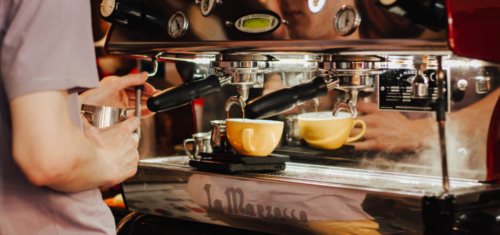
If you need a quick jolt of caffeine to get you going in the morning, espresso is a great option. This strong, concentrated coffee can be sipped on its own or used as a base for other coffee drinks like lattes or cappuccinos. Plus, its high caffeine content means you won’t need to drink as much to get the same effect as a regular cup of coffee. Espresso contains around 64 mg of caffeine per shot.
#2. Cold Brew
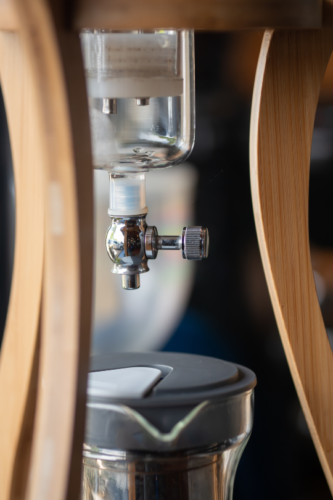
If you prefer a smoother, less acidic coffee, cold brew might be the way to go. Cold brew is made by steeping coffee grounds in cold water for an extended period of time, which results in a less bitter taste. Plus, the slow infusion process means that the caffeine is released more slowly, providing a longer-lasting buzz without the jitters. Cold brew contains around 65-70mg of caffeine per cup.
#3. French Press
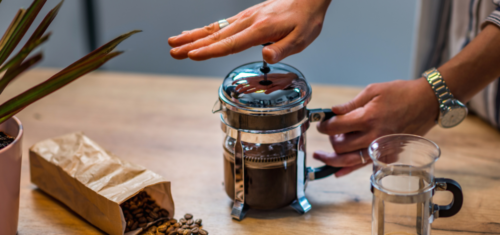
If you’re looking for a rich, full-bodied coffee experience, a French press might be just what you need. This brewing method involves steeping coffee grounds in hot water and then pressing them through a fine mesh filter to remove any sediment. The result is a robust, flavorful cup of coffee that can be enjoyed on its own or with a bit of cream and sugar. French press contains around 80 mg of caffeine per cup.
#4. Drip Coffee
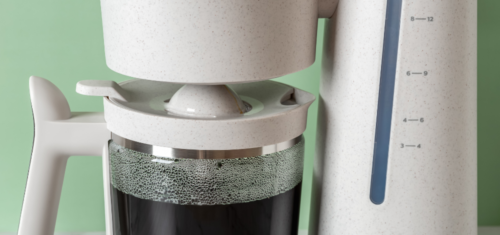
If you’re someone who likes to drink coffee all day long, drip coffee might be the most practical option. This classic brewing method involves hot water being poured over coffee grounds in a paper or permanent filter, resulting in a smooth, consistent cup of coffee. Plus, drip coffee makers are widely available and relatively inexpensive, making this an easy choice for college students on a budget. Drip coffee contains around 80-135mg of caffeine per cup.
#6. Black Coffee
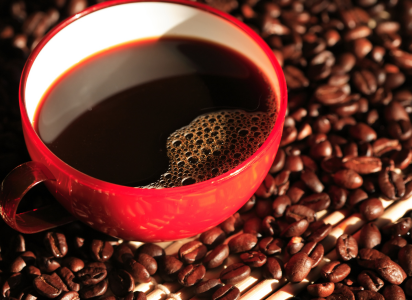
If you’re looking for a great way to get your daily caffeine fix without adding any extra calories or sugar, black coffee is the way to go. This no-frills brew has no added ingredients and is low in calories, making it a great choice if you’re trying to watch your waistline. Plus, with its bold flavor and high caffeine content, black coffee can give you the kick you need to stay focused and energized all day. Black coffee contains around 95-165mg of caffeine per cup.
#6. Cappuccino
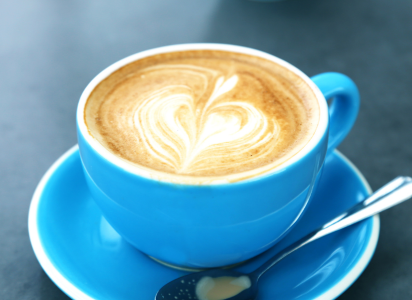
If you want the taste of espresso without all of the intensity, a cappuccino is a great option. This classic Italian drink combines espresso with frothed milk, resulting in a creamy, flavorful coffee that has a milder taste than espresso but still packs a caffeine punch. Cappuccino contains around 80 mg of caffeine per cup.
#7. Turkish Coffee
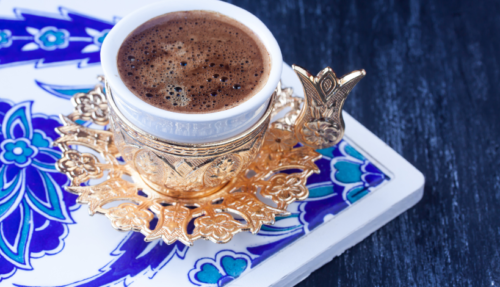
If you’re looking for a unique, flavorful coffee experience, Turkish coffee is a good one! This traditional Middle Eastern brewing method involves finely ground coffee being simmered in a pot and then strained into cups, resulting in an intense, full-bodied cup of coffee. Plus, Turkish coffee contains a higher concentration of caffeine than other brewing methods, so it’s perfect for those days when you need an extra boost. Turkish coffee contains around 80-90mg of caffeine per cup.
3 Recommended Brands of Strong Coffee for Students
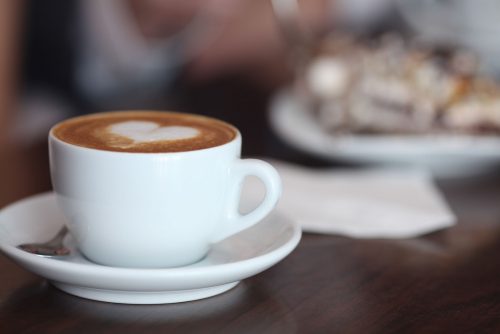
On top of these types of coffee, there are also some great brands out there that offer coffees specifically designed and marketed for students. Here are three to look out for:
#1. Death Wish Coffee
This brand offers a special blend of Arabica and Robusta beans with twice the caffeine content of regular coffee. Each cup contains up to 200mg of caffeine, making it one of the strongest coffees on the market.
#2. Black Insomnia Coffee
This South African brand offers beans roasted with a special blend of Robusta and Arabica. The result is an intensely caffeinated cup of coffee that contains up to 702mg per serving – more than three times the caffeine content of regular coffee!
#3. Java Monster
This is a great option for anyone looking for an energy boost. Each can contains two shots of espresso and some added energy ingredients like taurine, guarana extract, and B vitamins. The result is a smooth, flavorful drink that packs in up to 180mg of caffeine per can.
Is Coffee Good for Studying?
The short answer is yes – coffee can help you stay focused and alert when studying. Its caffeine content helps to increase focus and concentration, while also improving reaction time and memory recall. That said, it’s important to remember that coffee does have its limits. Too much caffeine can lead to jitters, anxiety, headaches, and even insomnia if you’re not careful. It’s best to drink coffee in moderation and be sure to stay hydrated throughout the day.
Should I Have Coffee Before Studying at Night?
It’s generally not a good idea to have coffee right before bed as the caffeine can interfere with your sleep. That said, if you need an extra boost of energy to help you power through a late-night study session, having a cup of coffee or espresso a few hours before bedtime may be beneficial.
Is Hot or Cold Coffee Better for Studying?
It really depends on personal preference. Cold brew generally contains less acidity and has a smoother taste, so it may be better for those who don’t like the bitter flavor of hot coffee. On the other hand, hot coffee can provide a more stimulating effect due to its higher caffeine content. Ultimately, it’s up to you which type you prefer.
Is Black Coffee or White Coffee Better for Studying?
Black coffee is generally the better option for studying, as it contains more caffeine and has no added sugar or calories. White coffee, on the other hand, is usually made with espresso and steamed milk which can add more sweetness and calories to the drink. If you want an energy boost without any added sugars or calories, black coffee is a better option. However, if you want a bit of sweetness and creaminess to your coffee, white coffee may be the way to go.
Will Coffee Give Me a Caffeine Crash?
Caffeine can give you a temporary boost of energy, but it can also cause a crash if consumed in excess. Too much caffeine can lead to jitters, anxiety, headaches, and even insomnia. To avoid these side effects, it’s important to drink coffee in moderation and spread out your consumption over the course of the day. If you still find yourself experiencing a crash, consider reducing the amount of coffee you drink or making some lifestyle changes to improve your energy levels.
Can Coffee Improve Memory?
Coffee can give you a temporary boost of energy and help improve concentration, but there is some evidence that suggests it may also have an effect on memory. Studies have shown that caffeine may help to improve memory recall and reaction time in the short-term by blocking certain receptors in the brain. However, more research is needed to understand how exactly coffee affects memory over the long-term.
Conclusion
Whether you prefer the strong kick of espresso or the smooth taste of cold brew, there’s a type of coffee out there that’s perfect for college students. By choosing the right type of coffee for your needs, you can stay focused and energized all day long without breaking the bank. Remember to hydrate in between and to take short breaks while studying and attending classes!